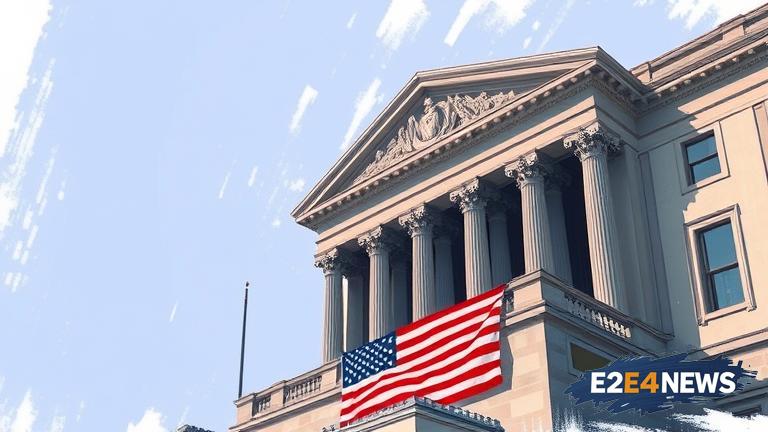A recent bill has been passed that cuts the funding of the Consumer Financial Protection Bureau (CFPB) in half, sparking widespread concern among consumer advocacy groups and financial regulators. The CFPB, established in 2010, is responsible for protecting consumers from unfair and deceptive financial practices. The funding cut is expected to severely impact the bureau’s ability to regulate financial institutions and protect consumers. The bill has been met with criticism from Democrats and consumer advocacy groups, who argue that the cut will leave consumers vulnerable to exploitation. The CFPB has been instrumental in regulating payday lenders, mortgage servicers, and other financial institutions, and has returned billions of dollars to consumers through enforcement actions. The funding cut is seen as a major victory for the financial industry, which has long been critical of the CFPB’s regulatory efforts. However, consumer advocacy groups argue that the cut will have far-reaching consequences for consumers, including increased fees, higher interest rates, and reduced access to credit. The CFPB’s director has expressed concern over the funding cut, stating that it will severely impact the bureau’s ability to protect consumers. The bill has also been criticized for its potential impact on low-income and minority communities, who are often disproportionately affected by predatory financial practices. The funding cut is expected to result in significant staff reductions at the CFPB, which will further limit the bureau’s ability to regulate financial institutions. The bill has been seen as a major setback for consumer protection efforts, and has sparked calls for increased oversight and regulation of the financial industry. The CFPB’s funding cut is also expected to have a major impact on the bureau’s ability to regulate emerging financial technologies, such as fintech and cryptocurrency. The bill has been criticized for its lack of transparency and accountability, with many arguing that it will allow financial institutions to operate with impunity. The CFPB’s funding cut is seen as a major victory for special interest groups, who have long been critical of the bureau’s regulatory efforts. However, consumer advocacy groups argue that the cut will have far-reaching consequences for consumers, including increased financial insecurity and reduced access to credit. The bill has also been criticized for its potential impact on the economy, with many arguing that it will lead to increased financial instability and reduced economic growth. The CFPB’s funding cut is expected to result in significant changes to the bureau’s regulatory priorities, with many expecting a shift away from consumer protection and towards industry-friendly regulation. The bill has sparked widespread concern among consumer advocacy groups, who argue that it will leave consumers vulnerable to exploitation. The CFPB’s director has expressed concern over the funding cut, stating that it will severely impact the bureau’s ability to protect consumers. The bill has also been criticized for its lack of consideration for consumer interests, with many arguing that it prioritizes the interests of financial institutions over those of consumers. The CFPB’s funding cut is seen as a major setback for consumer protection efforts, and has sparked calls for increased oversight and regulation of the financial industry. The bill has been met with criticism from Democrats and consumer advocacy groups, who argue that the cut will have far-reaching consequences for consumers. The CFPB’s funding cut is expected to result in significant changes to the bureau’s regulatory priorities, with many expecting a shift away from consumer protection and towards industry-friendly regulation.
